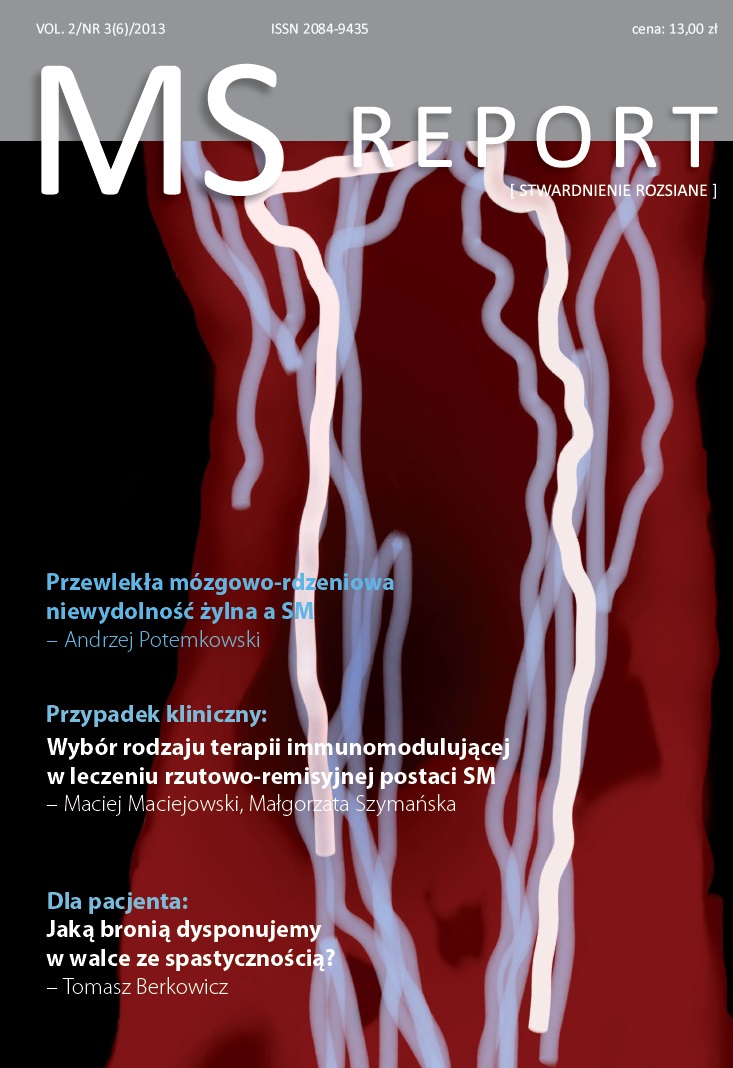Choosing the type of immunomodulatory therapy in the treatment of relapsing-remitting multiple sclerosis – case report Case report
Main Article Content
Abstract
The case report concerns the patient with relapsing-remitting multiple sclerosis in whom the disease and response to treatment indicates the necessity of continuous verifying the effectiveness and risks of treatment at every stage. The decision to choose the type of treatment should be based on a thorough assessment of the hazard and benefits of the therapy [1]. Multiple sclerosis is an unpredictable disease, the effectiveness of past treatments was limited, so there is concern in some patients and physicians to use modern methods of treatment. The abolition of immunity and inflammation rather than stimulation, are the most promising to modify the clinical course of multiple sclerosis [2]. Most of the validated data suggests that if we want to use drugs acting on the immune system in the treatment of MS, we must intervene before there is a clinically significant disability [1]. Immunomodulatory drugs available in Poland at described time were interferon beta-1a (INF beta-1a), interferon beta-1b (INF beta- -1b) and glatiramer acetate. Neither natalizumab, nor fingolimod were refundable.
Article Details
Copyright © by Medical Education. All rights reserved.
References
2. Multiple Sclerosis McAlpin’s. Wyd. IV. McAlpine D., Matthews W. B. (red.). 2010.
3. Andersen O.: Predicting a window of therapeutic opportunity in multiple sclerosis. Brain. 2010; 133(Pt 7): 1863-5.
4. Medycyna Praktyczna. Baza leków [online: bazalekow.mp.pl].
5. Harrison – Neurologia w praktyce klinicznej. Wyd. II. Hauser S.L., Josephson S.A. (red.). Czelej, Lublin 2012.
6. Multiple Sclerosis: Diagnosis and Therapy. Weiner H.L., Stankiewicz J.M. (eds.). 2012 DOI: 10.1002/9781119963714.

